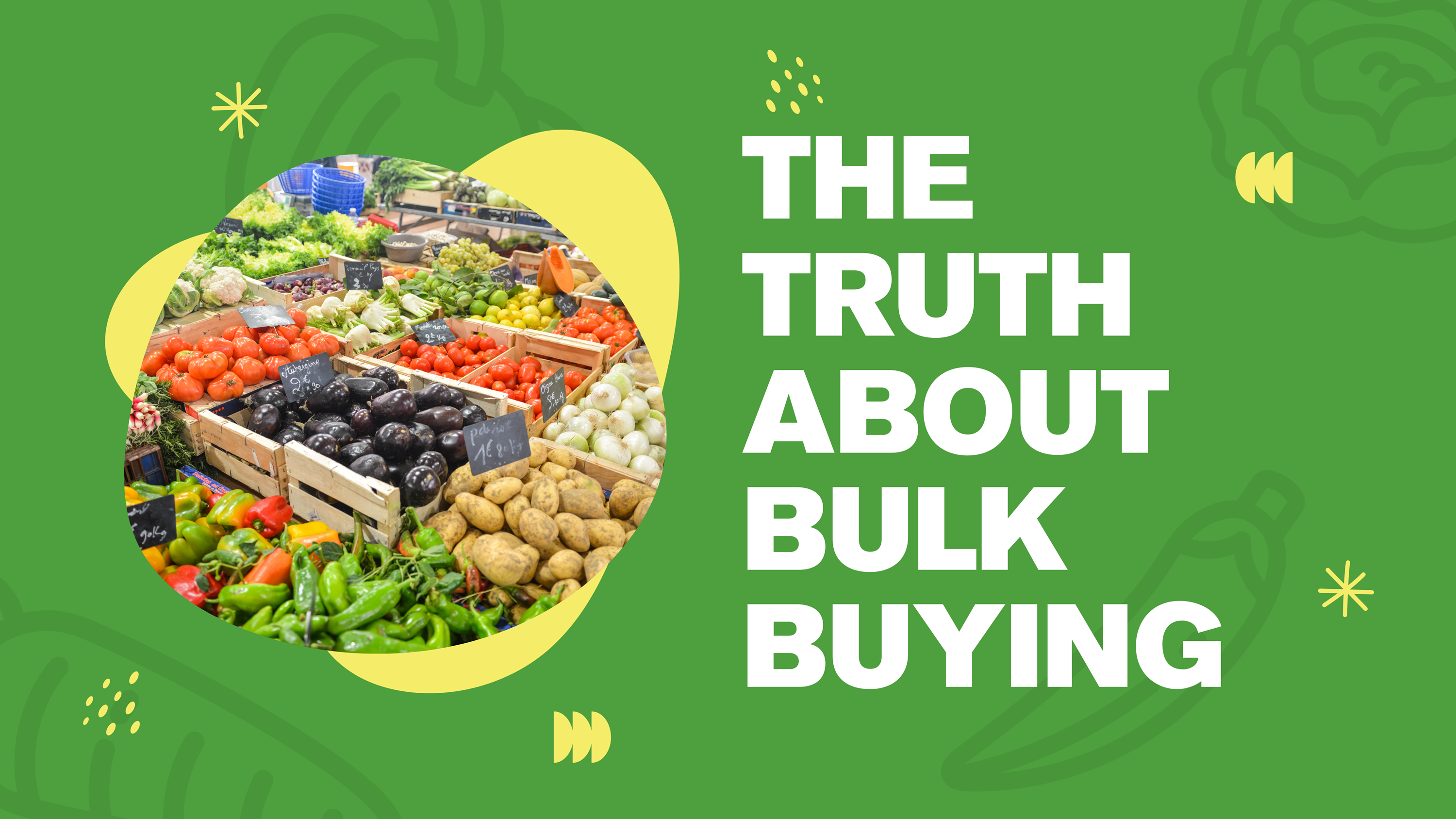
The Truth About Bulk Buying
- by Save On Groceries
- Jul 20, 2025
Introduction: The Truth About Bulk Buying
If you’re anything like most Aussie households, you’ve been told that buying in bulk is an easy way to save money. The idea sounds appealing — purchase large quantities of staples like rice, pasta, or toilet paper and enjoy lower unit prices. But is bulk buying always a smart financial move?
Surprisingly, the answer isn’t a simple yes or no. While bulk shopping works wonder in some scenarios, it can also lead to wasted money, increased waste, and clutter if not done carefully. That’s where understanding your needs, prices, and timing comes into play.
In this guide, we’ll explore when bulk buying actually saves you money and when it doesn’t. Plus, we’ll reveal how the Save On Groceries (SOG) app helps you compare prices across major Australian stores and make informed decisions for your grocery shopping.
The Case for Buying in Bulk: When It Saves You Money
1. Unit Cost Is Lower
The primary benefit of bulk buying is reduced per-unit costs. For example, buying a 2kg bag of rice might cost $4, whereas buying a smaller 500g bag could be $2. However, when you buy in bulk, you often get a better value overall.
Example:
|
Quantity |
Price |
Cost per 100g |
|
500g rice |
$2 |
$0.40 |
|
2kg rice |
$4 |
$0.20 |
This example shows significant savings per 100g with bulk purchase.
2. Savings on Perishables (When Used Quickly)
Buying perishable goods like meat or dairy in bulk can be cost-effective, especially if you freeze portions for later use. For example, buying a large pack of chicken breasts and freezing individual servings can save you money and trips to the store.
3. Supermarket Promotions & Loyalty Deals
Supermarkets often offer discounts on bulk items during sales or loyalty member deals. Combining bulk buying with these promotions can multiply your savings.
Using the Save On Groceries app helps you quickly identify these discounts across stores, so you maximize your savings on bulk purchases.
When Bulk Buying Can Cost You Money
1. Clutter and Waste
One of the biggest pitfalls is buying more than you need or can use. Expiry dates, especially for food items, can lead to waste — which is the opposite of saving money.
For example:
If you buy a large bag of almonds that you won’t finish before they go stale, you lose the money spent on it and create unnecessary waste.
2. Misjudging Your Consumption Needs
People often buy in bulk thinking they’ll use everything quickly, but busy lifestyles or changing preferences can lead to unused items sitting in the pantry.
Tip: Use the Save On Groceries app to compare prices and check if bulk deals are actually better than buying smaller quantities regularly.
3. Storage Issues and Cost
Buying in bulk requires adequate storage space. If you need to buy a new storage container or reorganize your pantry, these costs can diminish your overall savings.
4. Bulk Items Are Not Always Cheaper
Sometimes, stores advertise bulk deals that seem like savings but aren’t competitive when compared to smaller packages purchased at regular prices.
Example:
A 5-pack of bottled water at a supermarket might be more expensive per bottle than buying individual bottles elsewhere.
When Does Bulk Buying Save You Money?
1. Consistent Usage Items
Bulk buying makes sense when you regularly consume large quantities — like rice, pasta, canned beans, or toilet paper.
2. During Promotions and Sales
Take advantage of store discounts, especially during sales seasons. Use price comparison tools like the Save On Groceries app to find the store with the best bulk deal.
3. When Storage is Not an Issue
If you have space to store bulk items at home, you can buy larger quantities without the hassle of clutter.
4. For Freezable Items
Meat, bread, and some dairy products can be frozen, making bulk purchases economical over time.
How the Save On Groceries App Helps You Decide
The Save On Groceries app simplifies the process of deciding when bulk buying makes sense. It compares prices from Coles, Woolworths, Aldi, and IGA in real-time, highlighting promotions and bulk offers.
Features include:
- Immediate price comparison for your favorite products.
- Alerts for deals on bulk items.
- Weekly updates on discounts.
- Barcode scanner for in-store price checks.
Chart: How Much Can You Save?
|
Scenario |
Regular Purchase Cost |
Bulk Purchase Cost |
Savings on a Pack of Rice |
|
Weekly rice (500g) |
$2 |
$4 (2kg pack) |
$0.80 (per 500g) savings |
Using the SOG app, compare prices and identify if the bulk deal truly offers savings over weekly buying.
Tips to Maximize Your Bulk Buying Savings
- Plan meals and shopping around deals.
- Check expiry dates and storage needs.
- Use the app to compare prices before bulk buying.
- Buy only what you’ll use within the expiry period.
- Freeze perishable bulk items for later use.
- Invest in good storage solutions to keep items fresh.
Final Thoughts: Smart Bulk Buying is About Balance
Bulk buying can be a fantastic way to save money and reduce shopping trips — but only when done strategically. Avoid the temptation of stockpiling unnecessary items or overspending on bulk deals that aren’t truly cheaper.
Use the Save On Groceries app to stay informed about the best deals, compare prices instantly, and make smarter purchasing decisions. Remember, the goal is to buy what you need, when you need it, and at the best price — whether in bulk or smaller quantities.
Start shopping smarter today and keep your grocery budget under control!